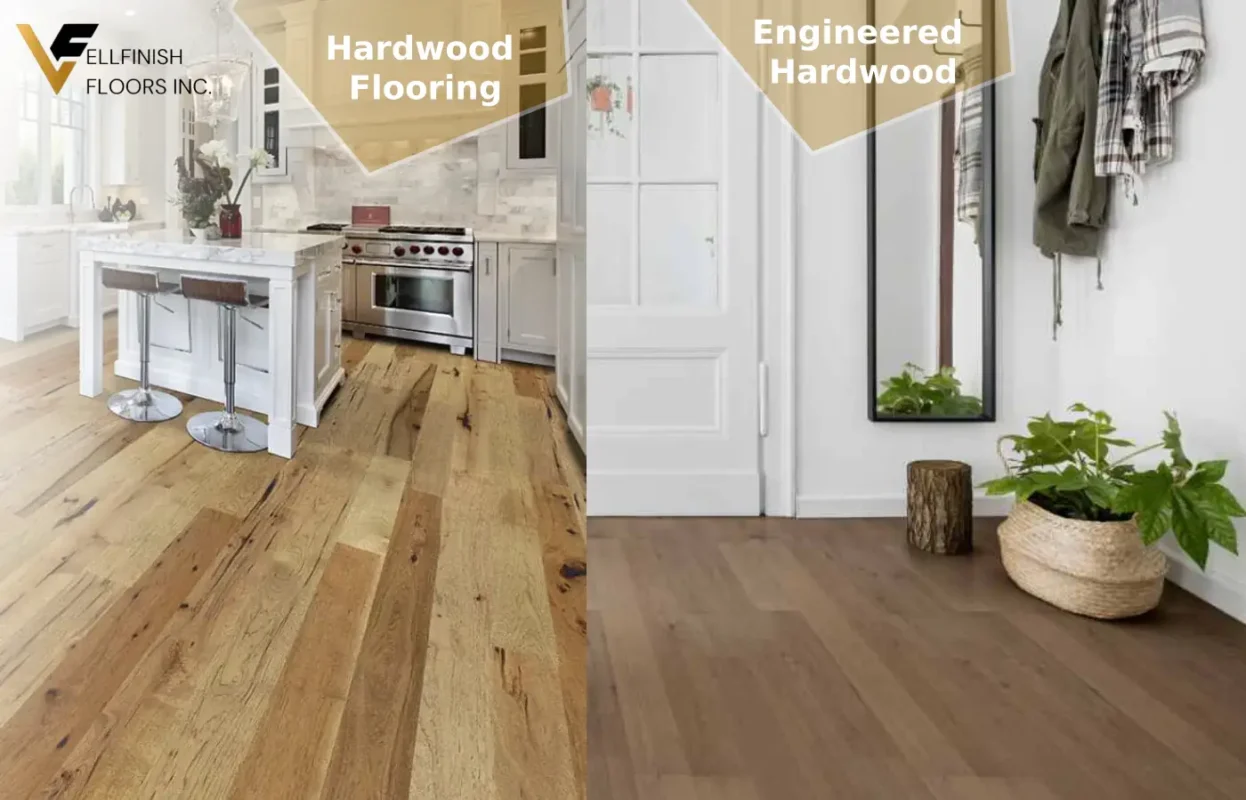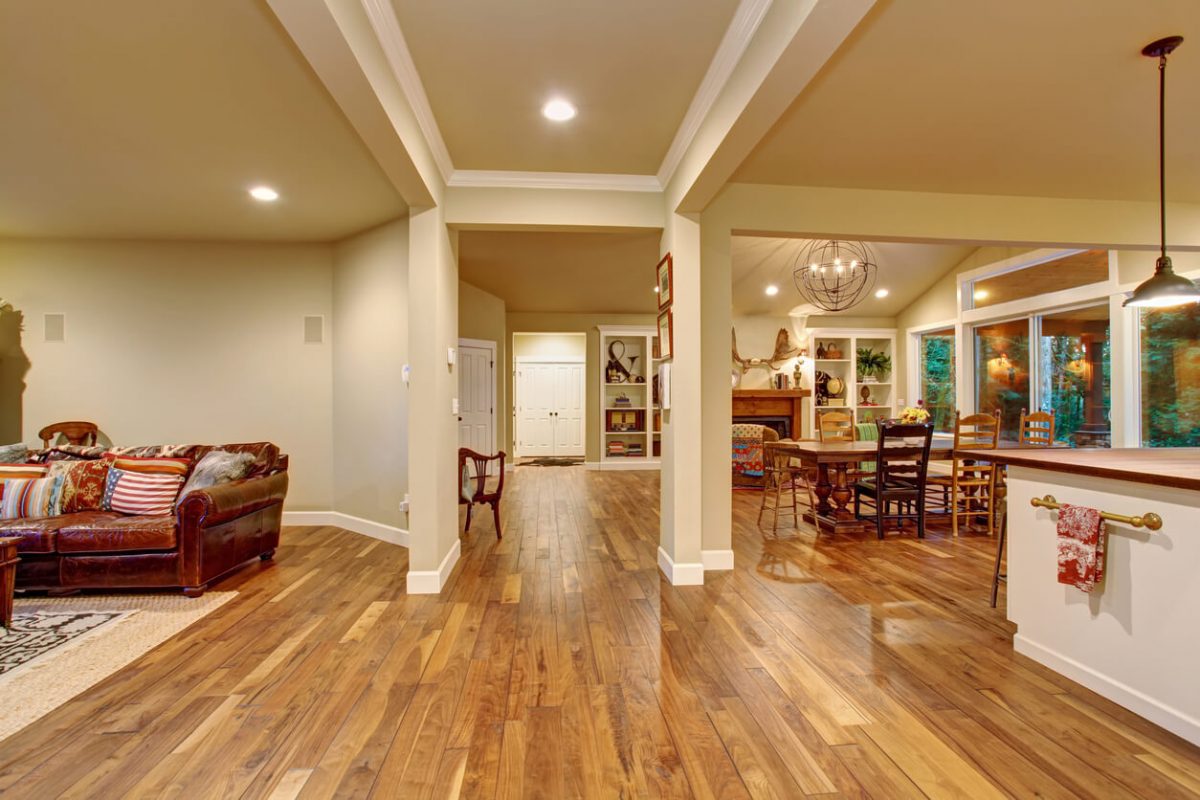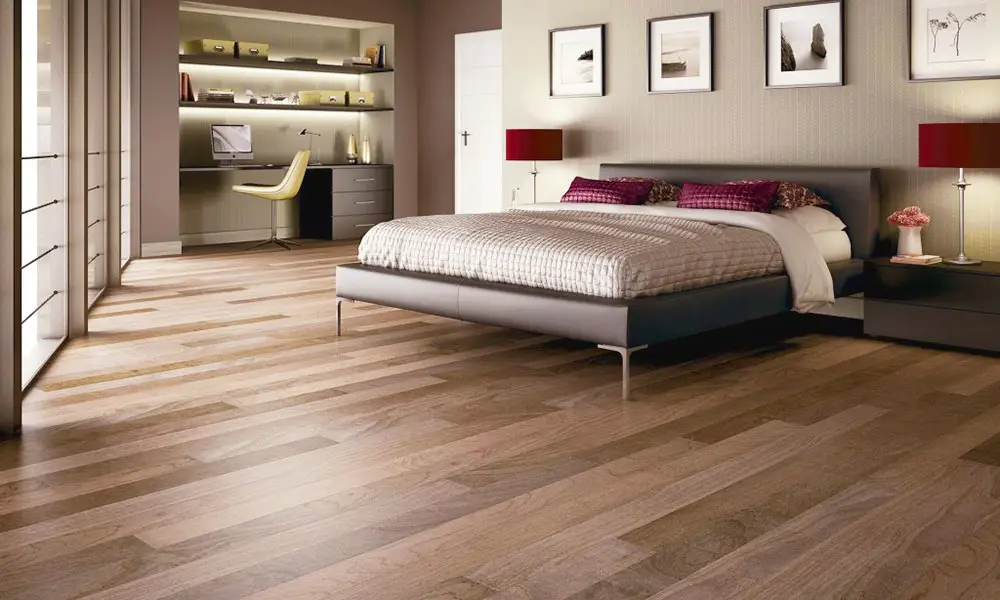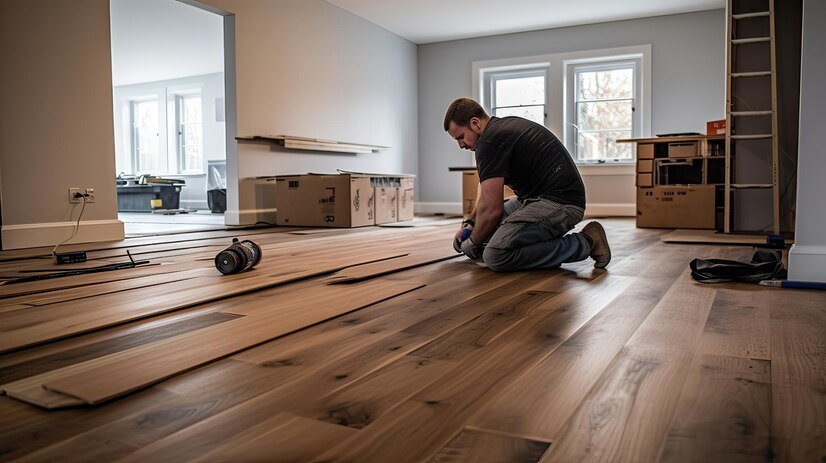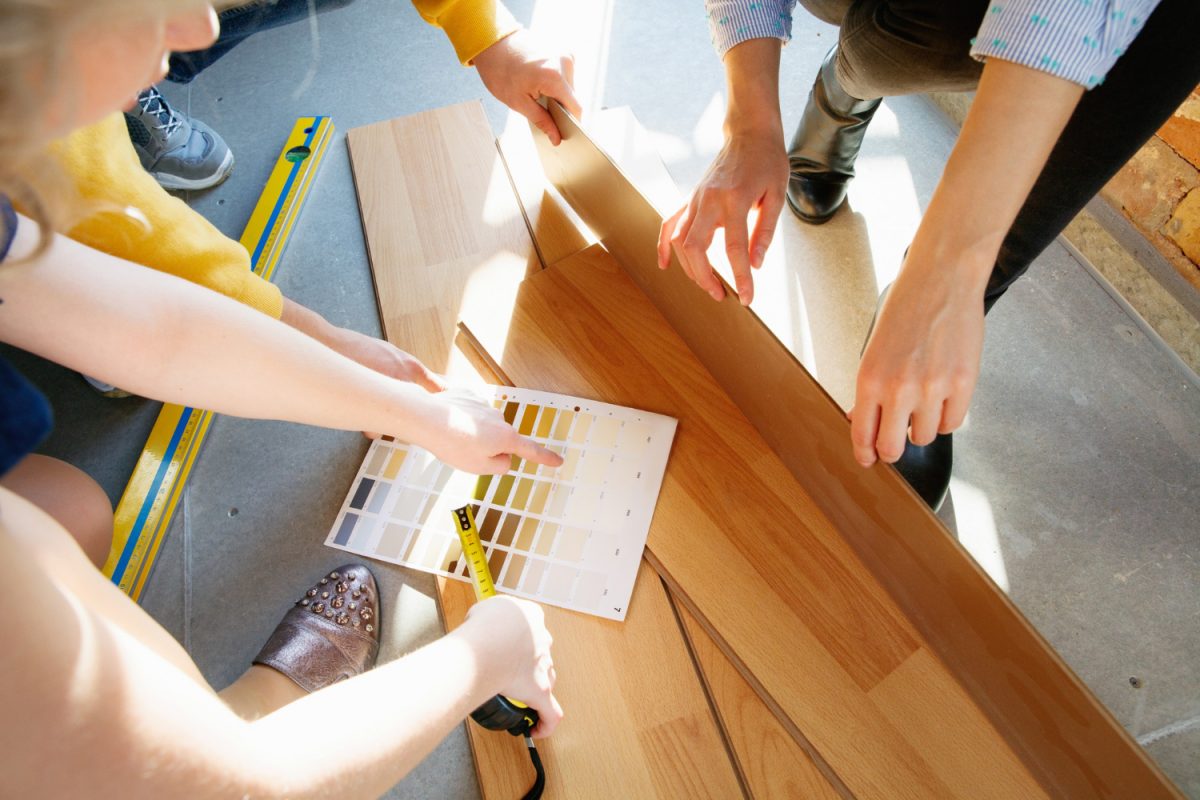Engineered Wood Flooring vs. Hardwood: Which Is Better?
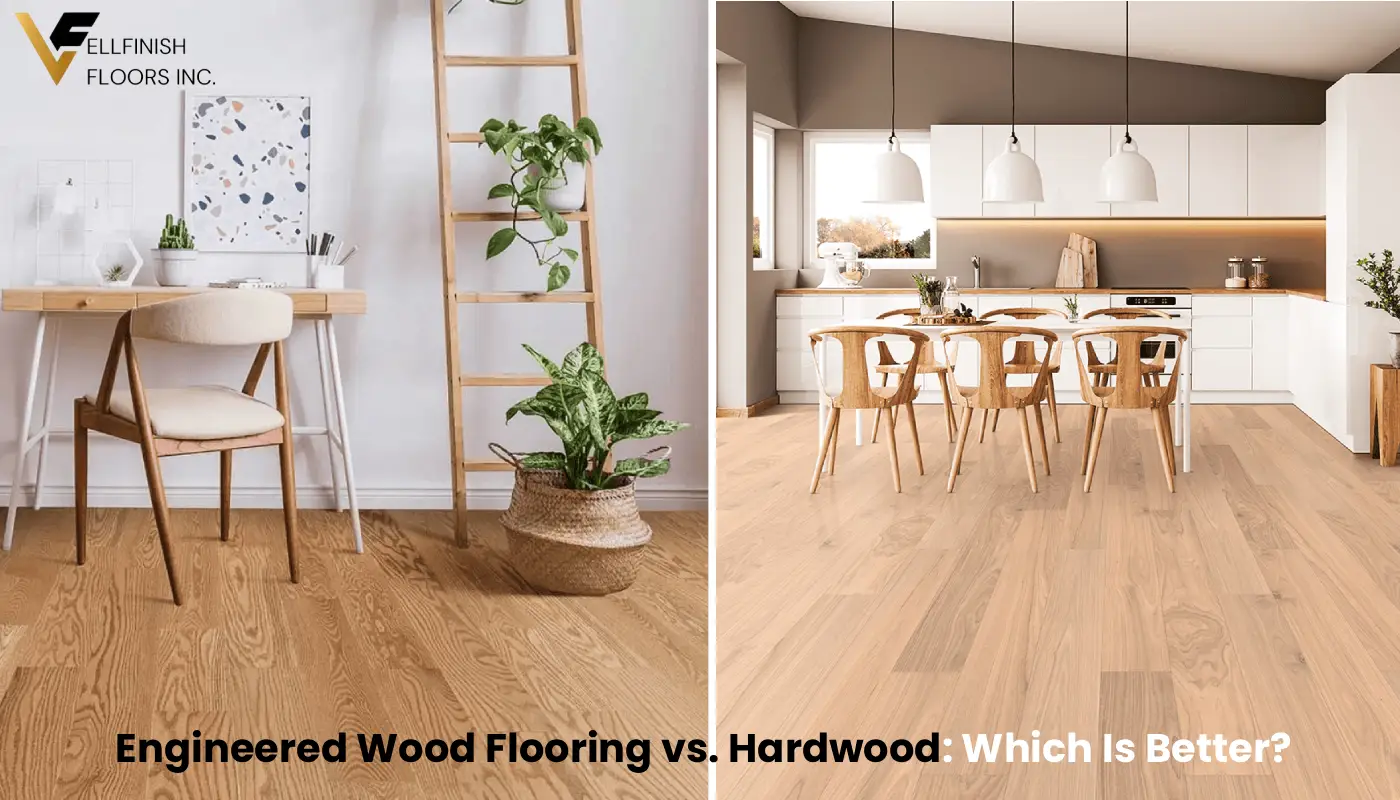
When it comes to selecting the correct floors for your house or business space, wooden flooring remains one of the most timeless and stylish options. However when you begin exploring wood floors, you’ll quickly stumble upon popular selections: Engineered Wood Flooring and Solid Hardwood Flooring. Both offer the natural beauty of wooden, however they vary in construction, sturdiness, installation methods, preservation wishes, and value.
So, which one is higher?
The answer relies upon for your lifestyle, finances, environment, and layout alternatives. This comprehensive manual compares engineered timber floors and hardwood in detail, supporting you’re making the right choice for your area.
What’s Hardwood flooring?
Strong hardwood flooring is made from a single piece of herbal timber. Every plank is reduce without delay from wood, making it:
- 100% herbal wooden
- Strong throughout its thickness (typically ¾ inch)
- Able to being sanded and refinished multiple times
Due to its herbal shape, hardwood flooring offers a surely real, wealthy, and long-lasting finish. It also develops individual over the years, adding warm temperature and cost to your private home.
What’s Engineered timber floors?
Engineered timber flooring is crafted from multiple layers of timber, with a top layer (veneer) of actual hardwood and numerous layers of plywood or high-density fiberboard below. Those layers are bonded collectively beneath heat and stress to create a solid, long lasting plank.
Key traits consist of:
- A actual hardwood pinnacle layer
- A solid center that resists enlargement and contraction
- To be had in diverse thicknesses and timber species
Though engineered wood is real wooden on the surface, the layered creation offers it advantages in moisture resistance and installation versatility.
Appearance and Aesthetic Differences
Both engineered and solid hardwood floors offer a natural wood appearance because they both include real wood. However, there are slight differences:
| Feature | Hardwood Flooring | Engineered Wood Flooring |
|---|---|---|
| Look & Feel | Rich, authentic, deep natural grain | Looks real but may slightly vary depending on top layer thickness |
| Aging | Develops beautiful patina over time | Aging depends on top layer quality |
| Refinishing | Can be refinished many times | Refinishing is limited (depends on veneer thickness) |
Verdict:
If you want a floor that ages gracefully and can last for generations, hardwood has stronger long-term visual appeal. However, high-quality engineered wood can look nearly identical to hardwood once installed.
Durability and sturdiness
Each flooring kinds are long lasting, however they react differently to environmental situations.
Hardwood flooring durability
- Hardwood expands and contracts with humidity
- Now not best for moisture-inclined areas (basement, kitchen, rest room)
- Very durable in dry environments
- Can remaining 50+ years with proper care
Engineered wood flooring sturdiness
- Engineered wood is greater dimensionally solid
- Higher resistance to moisture and temperature adjustments
- Appropriate for basements, condos, and radiant heating structures
- Can remaining 20–30 years, relying on veneer thickness and care
Verdict:
If you live in a location with high humidity or temperature fluctuations, engineered wood flooring is the higher preference.
For dry climates or traditional houses, hardwood offers unequalled durability.
Installation Differences
| Feature | Hardwood Flooring | Engineered Wood Flooring |
|---|---|---|
| Installation Method | Usually nailed down | Can be nailed, glued, stapled, or floated |
| Subfloor Requirements | Works best over wood subfloors | Can be installed over concrete, plywood, or existing floors |
| DIY-Friendly | Difficult for beginners | Easier and more flexible |
Hardwood flooring typically requires professional installation, while engineered flooring can be DIY-friendly. If your home has a concrete subfloor, engineered flooring is usually the best solution.
Maintenance and Refinishing
Hardwood flooring
- Very restore-friendly
- Can be sanded and refinished more than one instances
- Outstanding for long-time period recovery
Engineered wooden flooring
- Can be refinished only if it has a thick pinnacle layer (2–6 mm)
- Upkeep is much like hardwood (sweeping, dry mopping, occasional deep cleansing)
Verdict:
In case you need floors that can be restored again and again over the years, stable hardwood has the benefit.
Cost Comparison
| Cost Factor | Hardwood Flooring | Engineered Wood Flooring |
|---|---|---|
| Material Cost | Higher | More budget-friendly options available |
| Installation Cost | Higher | Usually lower depending on method |
| Long-Term Value | High resale value | Good resale value depending on quality |
Verdict:
If you are looking for premium luxury and long-term value, hardwood is worth the investment.
If you want beautiful flooring that fits a budget, engineered wood is the smarter choice.
Where Each Flooring Type Works Best
| Space | Recommended Flooring | Reason |
|---|---|---|
| Living Room & Bedrooms | Hardwood or Engineered | Both perform well |
| Kitchen | Engineered | Better moisture resistance |
| Basement | Engineered | Best for humidity and concrete subfloor |
| High-Humidity Homes | Engineered | Stable in climate changes |
| Historic or Luxury Homes | Hardwood | Authentic, timeless appeal |
Environmental Impact
Both flooring types come from natural wood, but engineered flooring uses less solid wood in comparison, making it more resource-efficient. However, ensure you look for FSC-certified products to confirm sustainable sourcing.
Pros and Cons Summary
Hardwood Flooring
Pros:
-
Long-lasting (50+ years)
-
Can be refinished many times
-
Adds property value
-
Rich, authentic beauty
Cons:
-
Expensive
-
Sensitive to moisture and climate
-
Harder to install
Engineered Wood Flooring
Pros:
-
More resistant to humidity and temperature changes
-
Versatile installation options
-
Suitable for basements and concrete floors
-
More affordable
Cons:
-
Limited refinishing potential
-
Lifespan depends on veneer thickness
So, Which Is Better?
There is no one-size-fits-all answer. Instead:
-
Choose Hardwood Flooring if you want long-term value, classic appeal, and the option to refinish multiple times.
-
Choose Engineered Wood Flooring if you need a cost-effective, moisture-resistant, and versatile installation option.
Both are excellent choices — it simply depends on your needs.
Looking for the Best Wood Flooring Supplier?
If you want premium-quality Engineered Wood Flooring or Solid Hardwood Flooring at competitive prices, Vellfinish Floors offers a wide selection of finishes, colors, and wood species suitable for homes and commercial spaces.
✅ Affordable wholesale pricing
✅ Expert guidance for selection and installation
✅ Fast delivery and wide product range
Contact Vellfinish Floors today to explore the best flooring solutions for your space!



